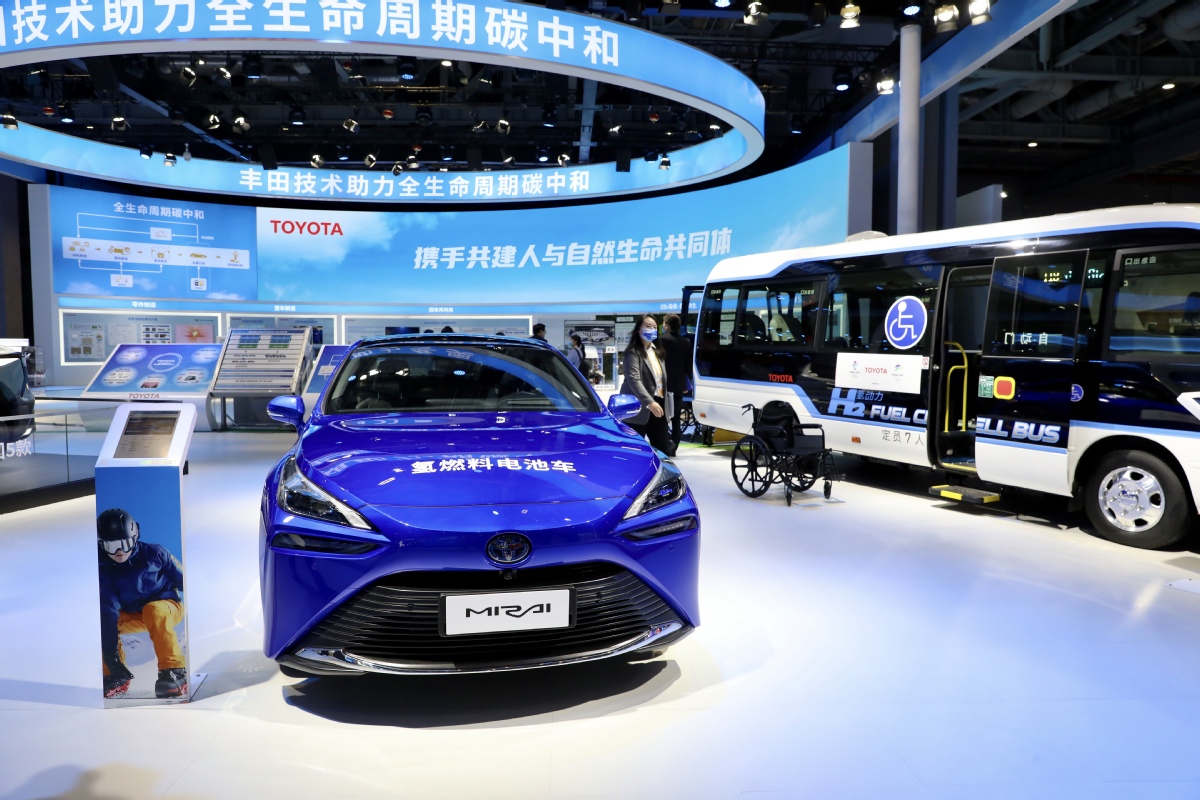The wait is over: Toyota to finally launch an EV


Japanese auto giant bides time before making a full commitment to building electric models
At long last, Toyota Motor Corp unveiled its electrification campaign last week, but its plan to roll out the first EV in 2022 shows the world's largest carmaker is still lagging behind the rest of the market.
At an online event last week, Toyota said it will launch 30 EVs by 2030, expecting their sales in the year to reach 3.5 million, or around one-third of its current vehicle sales.
That is less than rivals such as the world's No 2 carmaker Volkswagen, which in July predicted that half of its global vehicle sales will be electric cars by the same year.
Toyota did not offer details about its plans in major markets including China and Europe, where electric cars are fast becoming serious challengers to internal combustion.
In China, deliveries of electric cars and plug-in hybrids reached 2.51 million units in the first 11 months, roughly 14 percent of total passenger vehicle sales in the same period.
Ouyang Minggao, an automotive professor at Tsinghua University, said they are likely to account for 20 percent of total vehicle sales in 2022.
Toyota CEO Akio Toyoda said his company was still pursuing a multi-pronged, carbon-reduction strategy that also includes hybrid cars and hydrogen-powered vehicles.
"We want to leave all people with a choice, and rather than where or what we will focus on, we will wait a little longer until we understand where the market is going," Toyoda said.
In November, Toyota declined to join a pledge signed by six major carmakers, including General Motors and Ford, to phase out fossil fuel cars by 2040, arguing that not all parts of the world would be ready to transition to green cars by then.
GM, the largest carmaker in the United States, is rolling out 30 electric cars by 2025. The company will stop producing gasoline-powered light-duty vehicles from 2035, said CEO Mary Barra back in January.
Tesla's Shanghai plant produced over 400,000 vehicles in the first 11 months this year.
European carmakers are equally-if not more-aggressive in their path toward electrification.
Volkswagen is offering several ID.series models in the market. In its largest market of China, the German carmaker is selling five models this year, with their monthly sales hitting over 10,000 units.
British premium carmaker Jaguar is going electric by 2025, and Volvo will be producing only electric vehicles from 2030.
Daimler's Mercedes-Benz said it will only sell electric vehicles "where market conditions allow" from 2030. It is selling three China-made electric models, with another one to join in 2022.
Toyota is even not as resolute as its Japanese rivals when it comes to electrification.
Honda unveiled its plan in October, saying it will launch 10 electric car models in China in five years.
The first two models, which will be SUVs, will go on sale from early 2022 at its two joint ventures GAC Honda and Dongfeng Honda.
The carmaker said the two joint ventures will build dedicated electric car plants which are scheduled to start production in 2024.
The Japanese carmaker also said it will no longer introduce any new gasoline-powered models in China after 2030, which means all new models will be electric cars and hybrids.
Late last month, Nissan said 40 percent of the vehicles it sells in China would be electrified by 2026.
The figure would be 75 percent in Europe and 55 percent in Japan by the same year. In the United States, the figure would be 40 percent by 2030, said the third-largest carmaker in Japan.
The carmaker will invest up to 2 trillion yen ($17.59 billion) over the next five years to accelerate the electrification of its vehicle lineup and rate of technology innovation.
The investment will enable Nissan to introduce 23 electrified models, including 15 electric cars, by 2030.
They would help Nissan reach an electrification mix of more than 50 percent under its namesake marque and premium arm Infiniti.
- China's World Cup wonders gaining medal momentum
- Skoda looks for way out by decentralizing operations
- Top 10 world's largest companies by revenues on Global 500 list
- Toyota turns to Chinese partners to get green options going
- Commercial robotaxi pilot services launched in capital, Baidu among players seen capitalizing




































